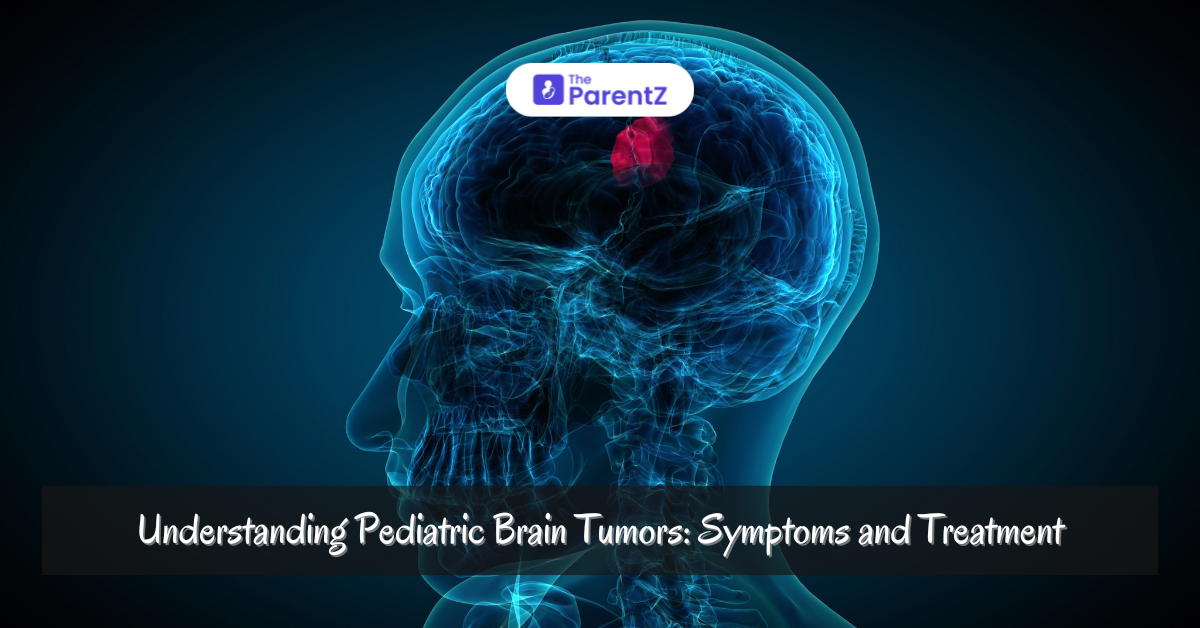While pediatric brain tumors are rare in children, it is a serious medical condition that is also the second most common type of cancer in children, after leukemia. Pediatric brain tumors account for about 1 in 4 childhood cancers, according to the American Cancer Society (ACS).
A brain tumor is an abnormal growth of cells within the brain or surrounding structures. It differs from adult brain tumors in many ways, including the location and response to treatment. Brain tumors in children can be either benign (non-cancerous) or malignant (cancerous). They, however, do not spread to other parts of the body but can result in severe health problems due to the pressure they put on the affected area in the brain.
Malignant tumors, on the other hand, can grow rapidly and spread to other parts of the central nervous system.
Did you know that about 5 out of every 100,000 children in the U.S. are diagnosed with a brain tumor annually? Therefore, it is important to seek early diagnosis.
Read this article to learn about pediatric brain tumors, their symptoms, causes, and treatment.
Types of Pediatric Brain Tumors
Primarily, there are four types of brain tumors that occur in children and include
- Astrocytomas: It is the most common type and typically arises from the brain's supportive tissue, ranging from low-grade (slow-growing) to high-grade.
- Medulloblastomas: It is the most common malignant brain tumor in children. It originates in the cerebellum, the part of the brain responsible for motor control.
- Brainstem gilomas: This type of tumor particularly impacts the brain stem and affects primary functions such as breathing, heartbeat, and blood pressure.
- Ependymomas: These tumors develop from the lining of the brain’s ventricles or spinal cord and can block the flow of cerebrospinal fluid.
Symptoms of Pediatric Brain Tumors
The symptoms of a brain tumor in children can vary depending on the size, type, and location of the tumor. Some of the common symptoms include
- Persistent headaches, especially in the morning, which worsen with coughing or bending over.
- Recurrent nausea and vomiting, particularly in the morning
- Problem in balance, walking, or coordinating actions
- Vision or hearing concerns
- Increased irritability and mood swings
- Difficulty in focusing
- New or worsening seizures
- Delayed growth or puberty phase
Causes
While the exact cause of pediatric brain tumors in kids is yet unknown, the associated risk factors include genetic conditions such as neurofibromatosis type 1 or Li-Fraumeni syndrome. Besides, radiation exposure also increases the risk of tumor development in children.
Treatment of Pediatric Brain Tumors
The 5-year survival rate for children with low-grade astrocytomas is around 90%. On the other hand, aggressive tumors, like high-grade gliomas, have lower survival rates. The treatment is based on the type, size, and location of the tumor, as well as the child’s overall health.
Healthcare providers recommend surgery as often the first line of treatment for brain tumors and is utilized to remove as much of the tumor as possible without causing damage to the surrounding brain tissue. In some cases, however, complete removal is not possible.
Besides, radiation therapy and chemotherapy are also involved, especially in aggressive or malignant tumors. In some cases, targeted therapy drugs are used to attack specific cancer cells, blocking their growth while sparing healthy cells.
Fortunately, survival rates for pediatric brain tumors have improved significantly over the past few decades.
Takeaway
Though rare, pediatric brain tumors require immediate medical attention along with prompt treatment to minimize the risk of long-term complications. Therefore, if you suspect any signs of a brain tumor in your child, it is recommended to visit the doctor immediately.





Be the first one to comment on this story.